Sakura Wars: Bringing the Past Back to the Present
Releasing a new PlayStation 2 game in this day and age is a weird proposition. While the user base for the console is incredibly large and there's a huge library of games still being played to this day, the market has by and large moved on to the current batch of technologically superior platforms. Save for a scant few budget and sports game releases, substantial developer support for the PS2 is dead. Yet in comes Sakura Wars: So Long, My Love, a game that's not only late to the party as a PS2 game, but also happens to be a localization of a game released in Japan back in 2005. It's bound to be entertaining only to a very specific niche that enjoys both anime and visual novel conventions, but considering the circumstances, it's not the worst way to get some fun out of the PS2, either, even if superior options are definitely out there.
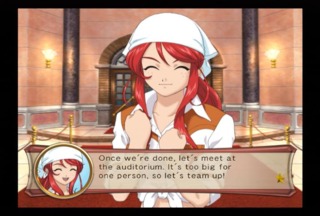
So Long, My Love places you in the shoes of Shinjiro Taiga, a 19 year-old Japanese kid sent to oversee the New York Combat Revue, which consists of an odd troupe of ladies who not only perform Broadway musicals, but also fight mechs and defend New York City in their spare time. Set in an alternate version of the 1920s that's dominated by steampunk technology, your main objective in the game is to prove your worth to your squad both in and out of battle. As the new guy to both the group and the USA in general, that means figuring out not only how the New York Combat Revue works and fights, but also how to cultivate relationships with people in your new foreign home.
Don't immediately presume that the game is an even mixture of combat and story, however. Most of the time, you'll be spending the game simply moving the plot along as it's being presented in a visual novel format. That means you'll usually just be reading or listening to dialog as it unfolds in a linear manner and then pressing the X button to move onto the next part. While the storyline itself is generally serviceable with some nice humorous moments sprinkled in, it does have pacing that will probably frustrate those who want to take a more active part in the game. Indeed, you don't even reach your first battle until around the two-hour mark, which is generally indicative of how your time will be siphoned off for most of the game. You'll get exposition for a few hours, then a climactic battle, and the exposition for another few hours again. Rinse, lather, repeat. It's a cycle that you'll eventually get accustomed to if you commit to it long enough, but those initial several hours can test your sanity if you don't actually know it's coming beforehand.
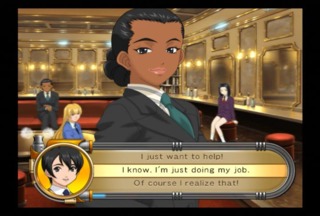
The story-heavy segments do still require player input from time to time, though. The gameplay involved during these times breaks down into several different types. Most often, you'll encounter points during conversations that require you choose what you'll say next. However, you've almost always only got a limited amount of time to decide, though. A timer will appear wrapped around the menu choices, which forces you to quickly commit to something and face the consequences, good, bad, or otherwise. You can even choose to not say anything at all during such opportunities, an option that's actually favorable sometimes. Regardless of what you do, the things you say affect your relationships with your teammates and other characters. The better standing you are with people, essentially, the more they'll trust you, which naturally has implications not only for how the story ends, but also how well they'll do in battle with you and the other Combat Revue members. Complimenting the dialog tree system is a one where you only have one thing to say, but can affect how enthusiastically or loudly you inflect the line itself. Although the implications typically aren't as major as the ones for the dialog trees, they nonetheless make for an amusing addition, especially on the rare occasion where the system is actually applied to physical actions and it's actually strength that you're influencing.
Very modest quick-time action segments appear with some regularity as well. These involve exclusively pushing the two analog sticks in a given direction on screen, with the only real variations occurring when you're made to do Mario Party-style stick circular spins really quickly and repeatedly to accomplish something. While the system isn't badly implemented, the simplicity of it nonetheless results in it merely being a minor distraction overall. They appear in very logical situations, such as cooking and running, and then promptly disappear once they're no longer needed.
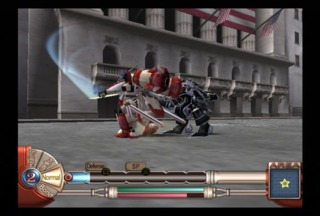
Equally as simple as the quick-time gameplay is the game's limited overworld exploration. From time to time, you'll have free time to explore New York City or run errands for the team. All this entails is you moving a polygonal model of Shinjiro and, from time to time, a companion from destination to destination, hitting the X button, and then continuing with the visual novel-style proceedings. Aside from a series of sidequests where you can take photographs of various local sights for a minor character, you're otherwise not doing much else. It makes for a nice change of pace, giving you a good opportunity to actually run around and move in an environment, but because you're often forced to just wander from place to place to kill time until the plot resumes, those segments can also be rather tedious, too.
Outside of the conversational mechanics, So Long, My Love's gameplay is at its most interesting when you actually get to go out and fight some enemies. The game then becomes an SRPG where the choices you made prior to the battle affect the teamwork between you and your comrades. The closer you are to one of the ladies, the better you'll fare when you team up with them to take out enemies. Even certain actions you do in battle, like protecting an ally from otherwise certain defeat or taking out an enemy that's harassing them, for instance, can influence your standing with the other characters. Who you fight with and how you interact with them around the battlefield are therefore crucial to winning.
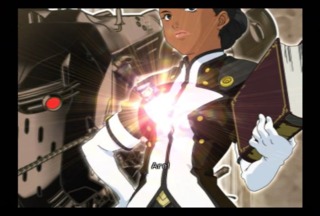
Thankfully, though, for those who find the gameplay in most SRPGs to be excessively complex and hard, the systems used in So Long, My Love are significantly more accessible. Gone are math-heavy standards like unit orientation, geographic elevation, and personal unit equipment. In their place is a system where most individual unit actions use up a single main meter where you can allocate different amounts of different actions within a set limit. If you decide to move a lot on the battlefield, that might prevent you from utilizing lengthy combo attacks, for example, and vice versa. Things like healing, team-up attacks, and defending also take up chunks of the meter, too. It's a system that takes a while to get used to, given that the meter affects the pacing of your movement and your attacks, but it's still easy enough to understand and master. You also have a separate meter that's mostly utilized to access each characters' special attacks, but it ultimately isn't as important as the main one.
Some auxiliary mechanics also exist for those that want some more refined control over their strategy and the overall outlook of a given battle. Beyond the expected unique traits each character has when moving and attacking, Shinjiro in particular also has tactical menu options that only he can access. From within them, he can do things such as choose a teammate to automatically protect in the event of an attack for a limited number of times, as well as summon them directly to his side in a tight spot. He can also alter the overall focus on combat, which affects how your main meter is used. If you decide to have everyone act defensively, then their defense stats are raised and they can defend without using up so much of the meter, but at the cost of having no special attacks. Likewise, you can choose to focus on attacking, which makes those same special attacks easier to pull off, but then cuts off access to healing. The game doesn't really go out of its way to really explain the functionality of some of these things, but given that they're by and large tactically optional as well, you can finish the game perfectly fine without using them. They're certainly handy and give what would otherwise be a pretty basic battling system some sense of refinement, but they're not overly necessary, either.
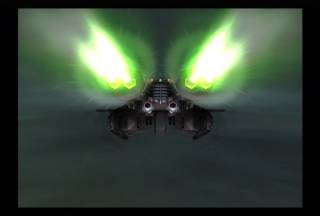
The individual components from both the visual novel and battling portions of So Long, My Love ultimately add up to make the game competent, but not outstanding. This is partly because the mechanics themselves aren't all that fleshed out and somewhat dated, but the game also has other issues that hold it back. As mentioned earlier, the pacing of the game is heavily skewed towards the visual novel segments of the game, where you can go hours without any real SRPG fighting whatsoever. While this isn't inherently bad in and of itself, as it gives the game that much more time to flesh out the characters, it's still problematic in the end. The quality of the story simply doesn't warrant giving it so much attention. The characters and their antics can be amusing in isolated vignettes, but the story as a whole isn't particularly great and is absolutely rife with character archetypes and cliches. In addition, the game does make use of some really brazen stereotypes about some aspects of New York and American culture that, while typically lighthearted and comedic, still come across as tired. This is especially vivid when you visit Harlem, an area that's apparently only relevant for, to paraphrase the game, "soul food [fried chicken], jazz, and basketball." When the plot also decides to focus mainly on a character you might not like, the wait until something good happens can be all the more arduous as result due to the spotlight being on them for very long periods of time.
The game also throws such logical curveballs at times with its story that you eventually begin to wonder just how seriously the developers took its own setting and characters, if at all. Those who thought that something like Indiana Jones surviving a nuclear blast inside a refrigerator was lunacy will have a good idea of just how drastically So Long, My Love sometimes jumps the proverbial shark. Had the game been more open about its sometimes ridiculous nature, it would be a lot more acceptable. But the game never fully embraces that aspect of itself, which makes those strange occurrences feel all the more awkward and out of place, especially towards the end. What you get in the end is a story that can be interesting and genuinely funny in spurts, but is otherwise not fantastically executed or worthwhile as a whole.
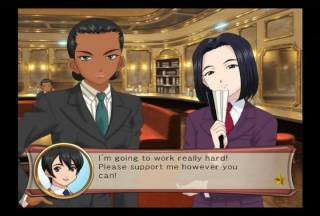
Even if the story was perfect, though, the fighting the game allows you to do from time to time still isn't all that engaging. Mastering the SRPG mechanics doesn't take very long at all, leaving with gameplay that, while solid, isn't particularly nuanced either. This only gets all the more compounded if you don't force yourself to take advantage of the few optional gameplay elements that are available during combat, since the game certainly doesn't require actually using them. Some of the designs of the missions themselves are also just borderline bad. An especially glaring example lies within the last third of the game, where you're tasked with retrieving some objects before the enemies can steal them. However, unlike the AI, which can just pick them up and carry them, no such option exists for your mechs. As a result, you're made to manually push them to the safe point, a task made all the more tedious since the statues can slip to the side as you move and you're probably taking them from one end of the map to the other. That's on top of the fact that you can actually lose the mission consistently within the first few turns due to the map layout heavily favoring the enemy. Most of the missions luckily aren't so enraging, but none of them are really fun and fantastically designed, either. It's unfortunate, too, since they're obviously designed to reward the player and give them something completely different to do instead of merely sifting through lines and lines of dialog.
On a technical level, So Long, My Love, keeps up the trend of being competent, but not really great. The visual designs for both the polygonal and 2D portions of the game are serviceable and on par with what you'd expect from a PS2 game. The only really pleasing graphical elements lie in the character designs, which are flamboyant and crisp to see on the screen. There are also a number of anime cutscenes that are well-animated, but they're not usually much more engaging than the rest of the game. The sound design is similarly okay. The music and sound effects are effective at doing their job, but contain no standouts whatsoever.
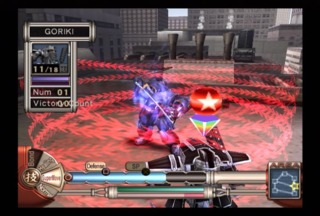
The English voice acting is also usually solid and works well at individualizing each character, although the heavily stereotypical accents and inflections that some of them employ can be excessive and grating. However, some actors manage to do a better job than others. The main cast usually inflects their lines appropriately and emotes when necessary, but other characters, most notably the main villain in the end, are done so badly while keeping a straight face that it seriously saps it of any and all intended seriousness. They don't completely derail the experience, but they're definitely a point where some better coaching could have been given in the sound booth. The PS2 edition of the game also lets you play through it with Japanese vocals on a separate disc if that's your preference. But, it should be noted that saves from the English-voiced disc are not compatible with it and cannot be loaded for whatever reason. You'll have to start from scratch and replay the game from the beginning if you decide to switch in the middle of your run.
The most important thing for a narrative-heavy localized game like So Long, My Love, though, is by far the actual translated text itself. A game that's so often played as a visual novel is naturally going to live or die by the quality of its writing. To that end, the game's English is, for the most part, well-written. NIS America took great care in retaining the individual dialog quirks and tendencies that a lot of characters exhibit and, in tandem with the voice acting, they help that much more in providing substance and depth to the proceedings. Some areas of the interface text and dialog still manage to come across as being a bit spotty, though. Characters sometimes have lines that will come across as being too literally translated for those familiar with Japanese, although it's only really noticeable when they're expressing politeness or being formal. The game will provide an adequate translation that theoretically fits, but is still colloquially awkward in those situations in native English. Certain menu options could have also benefited from better proofreading and/or rewording to make their functionality more apparent. One real such standout is the game's use of the word "discontinue," which actually saves the game mid-chapter instead of merely outright quitting as it would otherwise imply. Such slip-ups don't permeate most of the game, but they do make its written portions feel less polished than what it probably deserved.
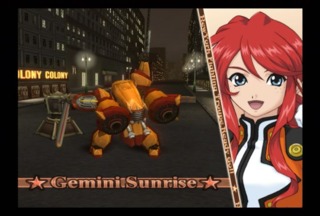
Sakura Wars: So Long, My Love is a game that suffers most from its dwindling relevance. Virtually every facet of it, from the graphics to the gameplay to the very platform of choice makes its designs feel somewhat antiquated. Indeed, it's a game that originally came out in Japanese five years ago and it feels like it belongs in that period. Had the game's English release come out in roughly the same time frame, it would have been a lot more timely, especially since new consoles still weren't out in full force yet. Yet here we are in 2010 and it's finally the time when the game goes overseas. If you're in the sort of niche that can appreciate slow-paced visual novels and anime, then there's still a lot to like about the game. But in the end, it's not a game that's getting any younger, let alone aging all that well. While some aspects of it continue to be interesting nowadays, there are enough off-putting things in today's terms that it's safe to pass on it if you didn't have a prior interest in it. The idea of getting a non-budget PS2 game in this day and age is still a pretty great one, but it doesn't make the experience any more necessary in the end.
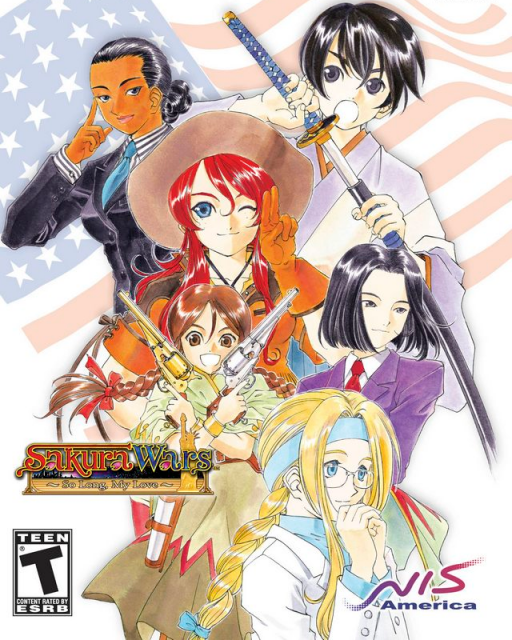
6 Comments